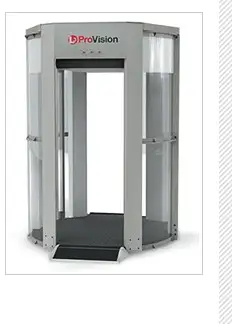
CNET reports that U.S. Marshals Service has admitted to storing some 30,000 images from a full-body scanner in use at a Florida courthouse. The revelation flies in the face of Transportation Security Administration (TSA) claims that full-body scanners can’t store images, and adds fuel to fears that increasingly widespread use of these machines at airports represents a major breach of an individual’s right to privacy.
According to CNET, “The U.S. Marshals Service admitted this week that it had surreptitiously saved tens of thousands of images recorded with a millimeter wave system at the security checkpoint of a single Florida courthouse.
“This follows an earlier disclosure by the TSA that it requires all airport body scanners it purchases to be able to store and transmit images for ‘testing, training, and evaluation purposes.’ The agency says, however, that those capabilities are not normally activated when the devices are installed at airports.”
The Obama administration’s 2011 budget calls for 1,000 new body scanners to be installed at airports across the nation.
Body scanners have long been a source of controversy among travelers and privacy advocates. They create detailed images of everything beneath a person’s clothes, and can detect concealed non-metallic items. The TSA wants passengers to believe full-body scanners are preferable to pat-down searches, but many people bristle at the idea of essentially being photographed nude.
The lone saving grace for these machines has been their purported inability to store or transmit images. The TSA has gone to great lengths to convince people that images are wiped immediately after they are viewed. CNET’s report, however, suggests that while perhaps this is true in practice, the machines are perfectly capable of storing images and sending them to other locations.
As far as I’m concerned, as long as the capability exists, there’s no guarantee it won’t be utilized. The TSA says the functionality is switched off at airports, but what prevents someone, either acting under orders or alone, from switching it on?
I’ve been against these body scanners since day one; I don’t believe it’s appropriate to subject innocent passengers to potentially humiliating virtual strip searches. And it’s not about my own personal modesty, but the idea that people shouldn’t have to sacrifice their privacy against their will just because they’re boarding a plane. So it should go without saying that this latest row over whole-body imaging hasn’t made me warm up to the idea.
Readers, what about you? Does this change your opinion on full-body scanners? Do you think it’s wrong to store images? Do you think the TSA should do whatever is necessary to keep us safe?
We hand-pick everything we recommend and select items through testing and reviews. Some products are sent to us free of charge with no incentive to offer a favorable review. We offer our unbiased opinions and do not accept compensation to review products. All items are in stock and prices are accurate at the time of publication. If you buy something through our links, we may earn a commission.
Related
Top Fares From
Today's Top Travel Deals
Brought to you by ShermansTravel
Shop and Save with Country Inns...
Patricia Magaña
 Hotel & Lodging Deals
Hotel & Lodging Deals
$229 -- Chicago: Discounted Rates and...
Francesca Miele
 Hotel & Lodging Deals
$229+
Hotel & Lodging Deals
$229+
$188 -- Honolulu: Save on Oceanview...
Abigail Lamay
 Hotel & Lodging Deals
$188+
Hotel & Lodging Deals
$188+



